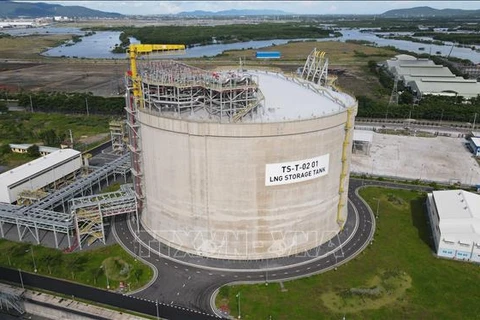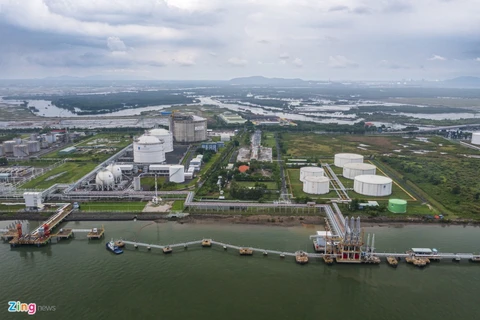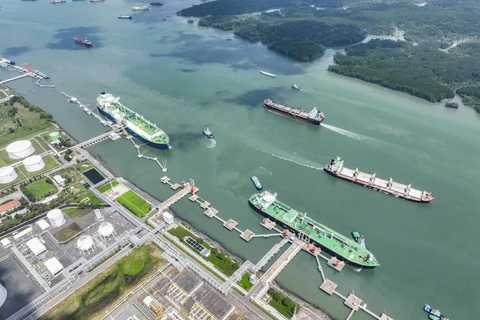Hanoi (VNA) - Vietnam is on the cusp of becoming a major player in the global liquefied natural gas (LNG) market, according to an article posted on the US website nasdaq.com on October 3.
The author James Hyerczyk wrote that this belief stems from Vietnam’s recently approved eighth Power Development Plan (PDP8), which sets ambitious targets for bolstering wind and gas energy capacities.
He cited information for Reuters that the plan will require a monumental 134.7 billion USD in funding, a portion of which is expected from foreign investments, including a 15.5 billion USD commitment from the G7 nations.
This strategic shift towards cleaner energy, backed by substantial financial commitments, underscores Vietnam’s emerging role as a new LNG importer.
In the immediate term, Vietnam’s nascent focus on LNG suggests a notable increase in global demand. The country currently has no LNG imports but has produced about 9 GW of natural gas domestically. PDP8 anticipates that by 2030, LNG will form a significant portion of Vietnam’s energy matrix, a move that could push LNG prices upwards.
By 2030, renewables like wind and solar are slated to cover nearly 31% of Vietnam’s energy needs. However, LNG will still make up a significant 24.8% of the total energy production. This persistent demand for LNG, coupled with hefty investments, is likely to sustain global LNG prices at elevated levels over the medium term.
Looking further down the road towards 2050, Vietnam aims for carbon neutrality. Achieving this lofty goal will necessitate up to 658 billion USD, according to government estimates. Even as Vietnam heavily invests in renewables like wind power, LNG is expected to serve as a reliable, cleaner alternative to coal, thereby maintaining its critical role in global energy dynamics and keeping prices robust, wrote James Hyerczyk./.
The author James Hyerczyk wrote that this belief stems from Vietnam’s recently approved eighth Power Development Plan (PDP8), which sets ambitious targets for bolstering wind and gas energy capacities.
He cited information for Reuters that the plan will require a monumental 134.7 billion USD in funding, a portion of which is expected from foreign investments, including a 15.5 billion USD commitment from the G7 nations.
This strategic shift towards cleaner energy, backed by substantial financial commitments, underscores Vietnam’s emerging role as a new LNG importer.
In the immediate term, Vietnam’s nascent focus on LNG suggests a notable increase in global demand. The country currently has no LNG imports but has produced about 9 GW of natural gas domestically. PDP8 anticipates that by 2030, LNG will form a significant portion of Vietnam’s energy matrix, a move that could push LNG prices upwards.
By 2030, renewables like wind and solar are slated to cover nearly 31% of Vietnam’s energy needs. However, LNG will still make up a significant 24.8% of the total energy production. This persistent demand for LNG, coupled with hefty investments, is likely to sustain global LNG prices at elevated levels over the medium term.
Looking further down the road towards 2050, Vietnam aims for carbon neutrality. Achieving this lofty goal will necessitate up to 658 billion USD, according to government estimates. Even as Vietnam heavily invests in renewables like wind power, LNG is expected to serve as a reliable, cleaner alternative to coal, thereby maintaining its critical role in global energy dynamics and keeping prices robust, wrote James Hyerczyk./.
VNA
























